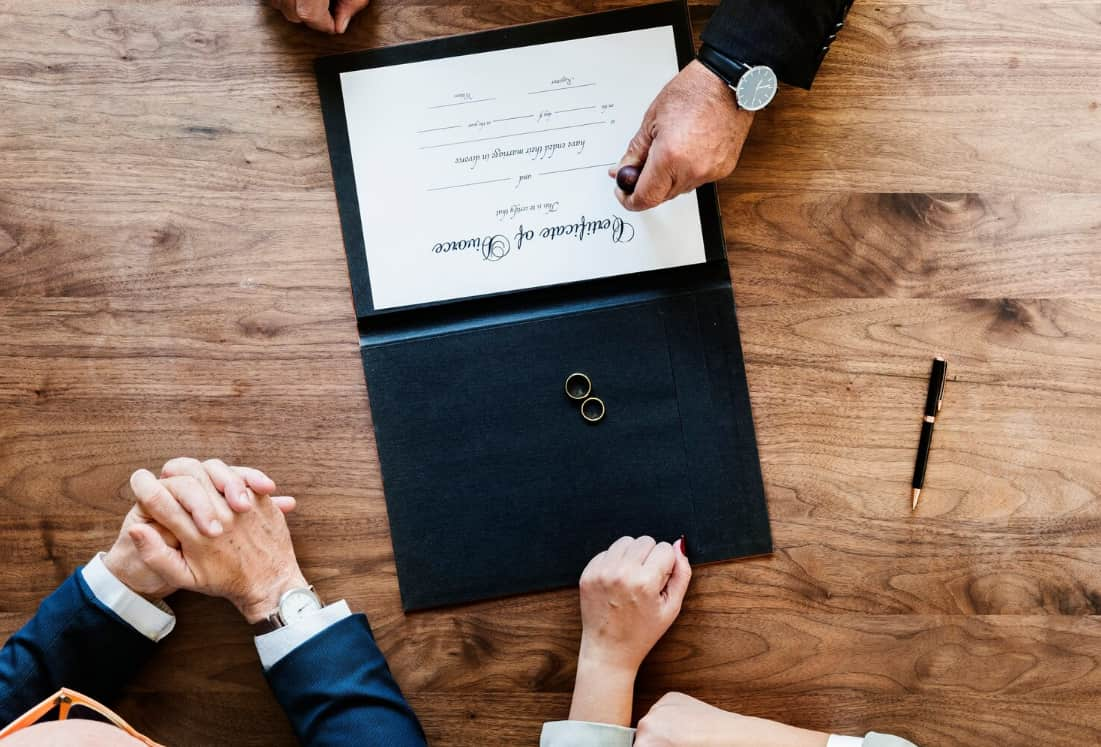Getting married is a big step in life, and sometimes couples choose to have a court marriage instead of a traditional ceremony.
In India, court marriages are becoming more common, especially for couples who want a simple, legal way to tie the knot.
But what exactly is a court marriage? How does it work? And what if you need protection after getting married in court?
This guide will walk you through everything you need to know about court marriages in India.
We’ll cover the basics, the paperwork you’ll need, and even what to do if you need help from the courts to stay safe after your marriage.
We’ll use simple words and explain things clearly, so even if you’re not familiar with legal terms, you’ll understand what’s going on.
Whether you’re thinking about having a court marriage yourself, or you’re just curious about how it all works, this guide is for you.
Procedure Of Court Marriage And Steps For Protection From High Court

Let’s dive in and learn about court marriages in India!
About Court Marriage in India
Court marriages in India are different from regular weddings. Here’s what you need to know:
- What it is: A court marriage is when two people get married by signing papers in front of a government official, instead of having a big ceremony.
- Where it happens: It takes place in a court or government office, not in a temple, church, or other religious place.
- Who can do it: Any two adults who are allowed to get married under Indian law can have a court marriage.
- Why people choose it:
- It’s simpler and often cheaper than a big wedding
- It’s a good option for couples from different religions or communities
- It’s quick and legally recognized right away
Key points about court marriages:
- They’re just as legal and valid as any other type of marriage in India
- You don’t need any religious ceremonies, just paperwork and signatures
- The process is the same all over India, no matter which state you’re in
- You get a marriage certificate right after the ceremony, which is proof of your marriage
Pre-Requisites for Court Marriage
Before you can have a court marriage, you need to meet some requirements. Here are the main things you need to check:
- Age:
- The man must be at least 21 years old
- The woman must be at least 18 years old
- Relationship:
- You can’t be too closely related to each other (like brother and sister)
- There’s a list of relationships that aren’t allowed – check with the court if you’re not sure
- Current marital status:
- Both of you must be single, divorced, or widowed
- You can’t already be married to someone else
- Mental health:
- Both of you must be of “sound mind” – this means you understand what marriage means and can make decisions for yourself
- Consent:
- Both of you must agree to the marriage freely
- No one can force you to get married
- Residency:
- At least one of you should have lived in the area where you’re applying for at least 30 days
Remember: These rules are there to protect people and make sure marriages are legal and fair. If you’re not sure about anything, it’s a good idea to ask at the court office before you apply.
Documents Required of Court Marriage
When you decide to have a court marriage, you’ll need to gather some important papers. Here’s a list of what you’ll usually need:
- Proof of age:
- Birth certificate
- School leaving certificate
- Passport
- Proof of address:
- Aadhaar card
- Voter ID
- Utility bills (electricity, water, etc.)
- Photos:
- Recent passport-size photos of both of you
- Identity proof:
- Aadhaar card
- PAN card
- Driving license
- Marital status proof (if applicable):
- Divorce papers if you were married before
- Death certificate of previous spouse if widowed
- Marriage application form:
- You’ll get this at the court, fill it out together
- Witness documents:
- ID proofs of your witnesses (you’ll need 2-3 witnesses)
- Affidavits:
- Statements saying you’re not already married
- Confirmation of your address and age
Important tips:
- Make sure all your documents are original and have photocopies too
- Some courts might ask for additional papers, so it’s good to check with them first
- Keep all these documents safe and organized – it’ll make the process much smoother
Protection from the High Courts After Court Marriage
Sometimes, after a court marriage, couples might face problems from their families or communities. If this happens, you can ask the High Court for help.
Here’s what you need to know:
Why couples might need protection:
- Families don’t approve of the marriage
- Threats or danger from community members
- Fear of honor-based violence
How the High Court can help:
- Order police protection for the couple
- Tell families and others to stay away from the couple
- Make sure no one interferes with the couple’s life
Steps to get protection:
- Go to the nearest High Court
- File a petition explaining your situation
- Provide proof of your marriage and the threats you’re facing
- The court will hear your case quickly
- If the court agrees, they’ll order protection for you
Remember:
- This protection is your right under Indian law
- Don’t be afraid to ask for help if you feel unsafe
- The court is there to protect your rights and safety
Document Required Protection After Court Marriage
If you need to ask the High Court for protection after your court marriage, you’ll need to provide some documents.
Here’s what you should prepare:
- Court marriage certificate
- This proves you’re legally married
- Identity proofs
- Aadhaar card, voter ID, or passport for both of you
- Address proof
- Recent utility bills or rental agreement
- Proof of threats (if any)
- Copy of police complaints
- Screenshots of threatening messages
- Statements from witnesses
- Affidavit
- A written statement explaining your situation and why you need protection
- Age proof
- Birth certificates or school leaving certificates
- Photos
- Recent photographs of both of you
Tips for preparing your documents:
- Make multiple copies of everything
- Keep originals safe but bring them to court
- Organize your papers in a clear, logical order
- If you have any audio or video evidence, bring it on a USB drive
Remember, the more evidence you have, the stronger your case will be. Don’t hesitate to include anything that shows why you need protection.
FAQs:
- How do I get protection after a court marriage?
To get protection after a court marriage:
- Go to the nearest High Court
- File a petition explaining your situation
- Provide all necessary documents (marriage certificate, proof of threats, etc.)
- Attend the hearing when scheduled
- If approved, the court will order protection measures for you
- What is the legal procedure for court marriage in India?
The legal procedure for court marriage in India involves:
- Meeting the age and other requirements
- Giving a 30-day notice to the Marriage Registrar
- Submitting all required documents
- Appearing before the Marriage Officer with witnesses
- Signing the marriage register
- Receiving your marriage certificate
- What is protection court marriage?
Protection court marriage isn’t a specific type of marriage. It refers to the legal protection couples can seek from courts if they face threats or danger after their court marriage.
This protection can include police security or orders to keep others from interfering in the couple’s life.
- How to prove marriage in court?
To prove marriage in court:
- Show your official marriage certificate
- Provide photographs of the marriage ceremony (if any)
- Bring witnesses who were present at the marriage
- Show joint bank accounts or other shared documents
- Present any official ID that shows your marital status
- What are the rights of a wife after a court marriage?
After a court marriage, a wife has several rights:
- Right to live in the marital home
- Right to maintenance from her husband
- Right to inherit her husband’s property
- Protection from domestic violence
- Right to custody of children (in case of separation)
- Right to her streedhan (gifts given to her before and after marriage)
- What is proof of genuine marriage?
Proof of genuine marriage can include:
- Marriage certificate
- Joint bank accounts or property ownership
- Shared rental agreements
- Photos of living together or attending events as a couple
- Statements from friends and family
- Evidence of shared responsibilities (like bills in both names)
- Can court marriage be done secretly?
While court marriages are generally public records, you can keep the process private:
- Don’t invite many people to the ceremony
- Don’t announce it publicly
- File for confidentiality if you have serious concerns (but this is rare and needs strong reasons)
Remember, the marriage itself can’t be secret from the government, but you can control who knows about it personally.
Conclusion:
Court marriages in India offer a simple, legal way for couples to get married. They’re especially helpful for people who want a quick, no-fuss wedding or those facing opposition to their marriage.
Remember these key points:
- Court marriages are just as valid as traditional weddings.
- You need to meet certain requirements and have the right documents.
- The process is straightforward but requires careful preparation.
- If you face problems after marriage, you can ask the High Court for protection.
- Your rights as a married couple are fully recognized after a court marriage.
Whether you choose a court marriage for simplicity, safety, or personal preference, it’s a respected and legal way to start your married life in India.
Always remember that you have rights and protections under the law, and don’t hesitate to seek help if you need it.
If you’re considering a court marriage, take the time to understand the process, gather your documents, and know your rights.
With the right preparation, you can have a smooth, stress-free start to your new life together.



